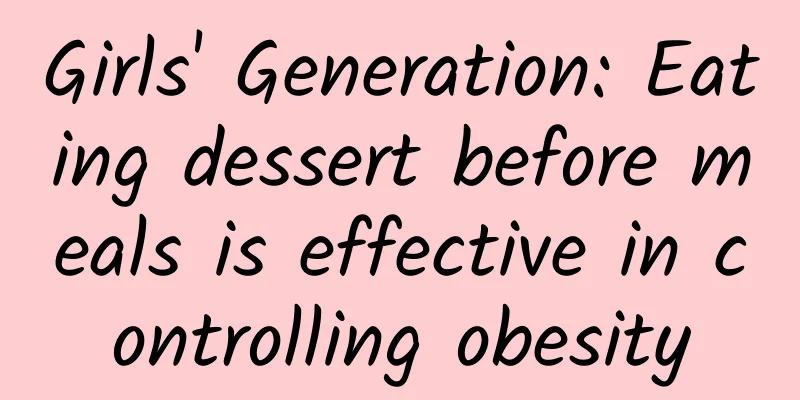Helps with weight loss, anti-inflammation, and inhibits cancer cells? Experts explain the ketogenic diet

|
The "ketogenic diet" can be said to be one of the most popular diets nowadays! It is common to see in newspapers and magazines that many celebrities and internet celebrities have successfully lost weight using this diet; however, there are also people who, due to improper implementation, not only fail to lose weight, but also suffer from their health. What is the physiological mechanism of weight loss through the "ketogenic diet"? Is it really better for weight loss than a traditional low-fat diet? For people who are eager to try the ketogenic diet but dare not give it a try rashly, what matters should they pay attention to and what potential risks should they consider? This issue of ILSI Taiwan column invites Associate Professor Lu Shaojun from the Institute of Biochemistry and Molecular Biology, College of Medicine, National Taiwan University to write an article to analyze the real situation behind the ketogenic diet craze. What is Ketosis? The mechanism of ketone body formation The ketogenic diet has been a hot topic recently, and some people use it to lose weight or regulate blood sugar. "Ketogenesis" refers to the production of ketone bodies. When there is a lack of glucose or insulin in the blood, it will prompt adipose tissue to break down triacylglycerol and release free fatty acids. The free fatty acids are transported to the liver through the blood. The liver oxidizes a large amount of fatty acids (β-oxidation). In addition to producing acetyl-CoA, it also produces ketone bodies (ketone bodies) - including acetoacetate, β-hydroxybutyrate and acetone. This situation usually occurs in diabetic patients with poor blood sugar control (insufficient insulin or insulin resistance), because the lack of insulin causes a large amount of free fatty acids to be sent to the liver for oxidation, which significantly increases the ketone bodies in the blood. Generally, if people do not eat for a long time or deliberately adopt a sugar-free diet, the body will lack glucose to provide energy, and instead use lipids to provide the energy needed for metabolism, which will also cause a significant increase in ketone bodies. Ketone bodies produced by the liver are transported to other organs via the blood for oxidation to produce energy, and are an alternative energy source. Most ketone bodies are excreted from the body through urine. Long-term use may cause blood acidification, a condition called ketoacidosis. In addition, acetone is excreted from the body when you breathe, and the exhaled breath will have a smell of acetone. Can the ketogenic diet inhibit epilepsy and cancer cell growth? More research is needed to clarify The ketogenic diet is mainly used clinically for children with difficult-to-control epilepsy. It can alleviate the frequent attacks of epilepsy, but its mechanism of action is unclear. Since it may cause side effects such as ketoacidosis, hypoglycemia, gastrointestinal distress, dehydration, lethargy and dyslipidemia, it needs to be implemented under the guidance of a physician and nutritionist. In addition, the ketogenic diet is also considered as an adjuvant therapy for cancer treatment, because most cancer cells mainly break down glucose to obtain energy, and some cancer cells have a poor ability to metabolize ketone bodies to produce energy. Therefore, by lowering blood sugar, insulin, and insulin-like growth factor, which promote the growth of cancer cells, a ketogenic diet may be able to suppress the growth of cancer cells. Some clinical studies have found that the ketogenic diet has anti-tumor effects, especially in some brain tumors. This news can be said to be a glimmer of hope for many cancer patients, but don’t ignore proper treatment and rashly use the ketogenic diet to fight cancer! Because cancer is diverse and changeable, and studies have shown that the ketogenic diet can promote tumors, the existing evidence is still insufficient to support the ketogenic diet as an auxiliary therapy for cancer treatment. We look forward to more large-scale clinical studies in the future to clarify the doubts. Characteristics of ketogenic diet and its clinical weight loss effect In a normal balanced diet, carbohydrates provide about 55% of daily calorie intake, while proteins and fats provide about 15% and 30% respectively. However, despite the promotion of low-fat diets over the past few decades, the number of people suffering from obesity and metabolic syndrome continues to increase. Therefore, dietary strategies with different concepts, such as the ketogenic diet, are also considered to be methods worth trying. The ketogenic diet advocates that fat provide about 70-75% of daily calories, protein provide about 20%, and carbohydrates provide about 5%-10%. The daily intake of carbohydrates is less than 50 grams (as shown below). This can be said to have overturned the concept of low-fat diet for decades! ▲ Comparison of ketogenic diet and general balanced diet. There are currently some clinical studies on weight loss that show that the ketogenic diet has a better weight loss effect than a low-fat diet in the short term, and it also has the effect of improving blood sugar in patients with type 2 diabetes. Scholars speculate that the ketogenic diet is more effective in reducing weight in the short term, probably because it reduces more water and suppresses appetite. After a year-long dietary intervention study, although it was shown that the ketogenic diet had a better weight loss effect than the low-fat diet, the difference was only about 1 to 2 kilograms. That is to say, under the same energy intake conditions, the effects of a ketogenic diet and a low-fat diet on body weight are not much different in the long run. In addition, after stopping the experiment, the subjects' weight changes were tracked for the next two years, and it was found that the weight of the subjects who consumed both diets would increase again, and the difference between them was no longer significant. Risks and precautions you should know before following a ketogenic diet The above-mentioned ketogenic diet studies were conducted under the supervision of physicians and nutritionists to ensure that they provided adequate amounts of various essential nutrients. It is not easy for people to follow the ketogenic diet to lose weight correctly, especially for those who eat out. When avoiding sugar intake, common commercially available foods that are mainly sugar-containing, such as rice, pasta, bread, biscuits, desserts, sugary drinks, etc. should be avoided, and people's food choices will be greatly reduced. In particular, it is not an easy task for ordinary people to increase the calories provided by fat to more than 70% and control the protein within 20%, while still maintaining the intake of various essential nutrients. It is recommended to consult doctors, nutritionists and other medical personnel in advance, and decide whether to implement it after evaluating your health status. You should also regularly track changes in blood pH, blood lipids, blood pressure, blood sugar, etc. If you want to follow a ketogenic diet for a long time, the biggest risk is the possibility of ketoacidosis and nutritional imbalance. Without considering the possible long-term safety issues, if you want to adopt a ketogenic diet, it is recommended to have an adaptation period to gradually enter it in order to alleviate the flu-like ketogenic discomfort (Keto Flu) symptoms, such as: fatigue, weakness, dizziness, headache, nausea, etc. In addition, pay attention to food diversity and avoid excessive intake of saturated fat. Patients with certain specific diseases should also pay special attention. For example, if diabetics who are taking hypoglycemic drugs want to use a ketogenic diet, they must inform their doctor in advance to avoid hypoglycemia caused by the dual effects of hypoglycemic drugs and the ketogenic diet. Kidney patients who adopt a ketogenic diet should avoid consuming too much protein to avoid increasing the burden on the kidneys. Although many people are currently opposed to the ketogenic diet, it is undeniable that the ketogenic diet has shown some positive results in some clinical experiments. Recent studies have shown that β-hydroxybutyrate in ketone bodies has the effect of inhibiting the activation of inflammasomes, which may be the reason why some people believe that the ketogenic diet has an anti-inflammatory effect. If you don't want to rush into the ketogenic diet and want to lose weight, what basic principles can you follow? People who advocate the ketogenic diet may think that carbohydrates are not essential nutrients and are harmful to health, so they should be avoided as much as possible. But in fact, not all "sugars" are equally bad. In addition to providing energy, glucose is also involved in other metabolism, such as providing the pentose required for the synthesis of genetic materials DNA and RNA and producing NADPH to promote the operation of glutathione antioxidant cycle. It is still unclear whether long-term ketogenic diet will affect these important physiological operations. If you don't want to try the ketogenic diet but want to make some changes, you can actually consume different "sugars" and try to avoid eating "simple sugar" and foods containing refined carbohydrates, such as white bread, white rice, noodles, desserts, cakes, candies, sugary drinks, etc.; instead choose unrefined whole grains rich in dietary fiber, a variety of vegetables and fruits, which are all original foods rich in "sugar". In addition, avoid eating desserts, cakes, candies, sugary drinks, etc. between meals. These sweets will raise your blood sugar and insulin levels again, which have just dropped, and will cause you to consume excess calories, which is not helpful for weight loss. Of course, if we consider the concept of quality of life and give ourselves a sense of happiness, we don’t need to feel too guilty about eating sweets occasionally. Whether you can lose weight successfully, "determination" is actually the biggest key. If you can increase your activity and reduce your calorie intake, I believe that whether it is a ketogenic diet or a low-fat diet, it will have a weight loss effect in the long run. When the calorie intake is higher than the expenditure, weight will increase; conversely, when the calorie intake is lower than the expenditure, weight will decrease. This is the simplest truth and the least controversial. (End of full text) 【ILSI Taiwan Columnist】 Associate Professor Lv Shaojun Associate Professor of the Department of Biochemistry and Microbiology, National Taiwan University College of Medicine, and currently the Editor-in-Chief of the Journal of the Taiwan Nutrition Society. His research expertise lies in cholesterol and lipoprotein metabolism, inflammatory mechanisms of acute myocardial infarction and non-alcoholic fatty liver disease. This article is from the Taiwan International Life Sciences Society column |
>>: Improve metabolism and burn fat ~ These 3 fruits with yogurt will help you lose weight quickly
Recommend
What medicine can cure female cervical erosion? Guide to drug treatment of female cervical erosion
What Chinese medicine should be taken for moderat...
What are the symptoms of right ovarian cyst?
What are the symptoms of right ovarian cyst and i...
What principles should be followed in the treatment of chocolate cyst patients?
The pressure of life is a pair of invisible hands...
Can you train your abs while standing? 5 tips to develop perfect abdominal muscles
Health is the key, a slight waistline is more att...
What are the differential diagnosis methods for endometrial tuberculosis?
When it comes to endometrial tuberculosis, many w...
Are the symptoms of cervical precancerous lesions serious?
There are many symptoms of cervical precancer. As...
How big is the uterine fibroid before surgery?
At what size can uterine fibroids be operated on?...
Common causes of cervicitis in women
Cervicitis is a common disease of the female repr...
How to treat miscarriage
Abortion is a kind of harm to every woman, both p...
What are the causes of dysmenorrhea?
Nowadays, many women have dysmenorrhea. In fact, ...
Dietary taboos for congenital absence of vagina
What are the dietary taboos for congenital vagina...
What to do if you suffer from Bartholinitis after abortion
Bartholinitis, literally means an inflammation of...
How to treat cervical erosion after normal delivery? The 6 most effective treatments for cervical erosion in women
Many women have a very smooth childbirth, but dev...
Uncovering the common gynecological diseases hidden under dysmenorrhea
Dysmenorrhea is a symptom that many women will en...
Specific analysis of the causes of irregular menstruation and dark menstrual blood in women
Irregular menstruation is a very common disease i...









